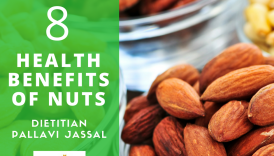The Ultimate Guide to Boosting Your Immune System Naturally

Importance of a Strong Immune System
In today’s fast-paced world, maintaining a healthy lifestyle feels more crucial than ever, especially when it comes to the immune system. A robust immune system is your body’s first line of defense against pathogens, diseases, and the overall wear and tear of daily life. Picture this: every day, your body is exposed to countless viruses and bacteria. A strong immune system doesn’t just help you fend off the occasional cold but plays a vital role in preventing chronic diseases as well. With a well-functioning immune system, many people find themselves less susceptible to illness, requiring fewer sick days, and often enjoying a higher quality of life. But why is this immune power so important? For starters:
- The Ultimate Guide to Boosting Your Immune System Naturally
- Importance of a Strong Immune System
- Benefits of Boosting Immunity Naturally
- Healthy Diet for Immune System
- Foods to Include for Immune Support
- Supplements to Enhance Immunity
- Adequate Sleep and Immunity
- Impact of Sleep on Immune Function
- Tips for Improving Sleep for Better Immunity
- Regular Exercise for a Strong Immune System
- Effects of Physical Activity on Immunity
- Best Types of Exercise for Boosting Immunity
- Managing Stress to Support Immune Health
- Connection Between Stress and Immune System
- Stress-Relief Techniques for Better Immunity
- Disease Prevention: A strong immune system can lower the risk of infectious diseases.
- Faster Recovery: Your body can recover from sickness quicker.
- Overall Health: Vital for maintaining general well-being and longevity.
Benefits of Boosting Immunity Naturally
While there are numerous supplements and medications available to enhance immunity, boosting it naturally can be equally effective—and often comes with additional health benefits. This approach not only supports your immune health but also improves your overall physical and mental well-being. Here are some compelling reasons why one should consider natural methods for boosting immunity:
- No Side Effects: Natural methods are less likely to cause adverse effects compared to synthetic options.
- Holistic Health: Supporting immunity through natural means often leads to better nutrition, weight management, and stress reduction.
- Long-term Benefits: Establishing healthy habits can lead to sustained immune support, rather than short-term fixes.
When individuals embrace natural immunity-boosting strategies, like good nutrition, exercise, and sleep, they often report feeling more energetic and resilient. For example, one individual shared how incorporating more whole foods into her diet reduced her instances of seasonal sickness. In essence, the journey towards bolstering the immune system doesn’t have to be complicated; it can be made enjoyable and rewarding through simple lifestyle changes. Transitioning towards a healthier living can unlock not just immunity, but also a zest for life.
Healthy Diet for Immune System
Foods to Include for Immune Support
Building a robust immune system begins with what you fuel your body with daily. A well-balanced diet rich in specific nutrients can provide the support your immune system needs to function at its best. Here’s a list of some incredible immune-boosting foods to include in your diet:
- Citrus Fruits: Oranges, lemons, and grapefruits are packed with Vitamin C, known for its immune-enhancing properties. Adding a squeeze of lemon to your water or snacking on an orange can be refreshing and beneficial.
- Garlic: This powerhouse not only adds flavor to your dishes but is also known to enhance immune function. A friend once shared how integrating garlic into her meals reduced her cold frequency significantly!
- Spinach and Leafy Greens: Rich in antioxidants and Vitamin C, spinach can be a game-changer. Toss it in a salad or blend it into a smoothie for a nutritious boost.
- Nuts and Seeds: Almonds, walnuts, and sunflower seeds are rich in Vitamin E, essential for immune support. A small handful can serve as an easy snack or a delightful topping for yogurt.
Incorporating these foods into your meals can create a delicious barrier against illnesses while enhancing your overall health.
Supplements to Enhance Immunity
While a healthy diet is crucial, sometimes our bodies may need an extra boost that can be effectively provided through supplements. Here are some popular options to consider:
- Vitamin D: Often referred to as the “sunshine vitamin,” Vitamin D plays a critical role in immune health. For those living in areas with limited sunlight, a supplement may be essential, especially during the colder months.
- Zinc: This mineral is essential for a properly functioning immune system. It can be found in various food sources, but a supplement may help if dietary intake is insufficient.
- Probiotics: These beneficial bacteria support gut health, which is directly linked to immunity. Many individuals find that a daily probiotic improves their digestive health, and in turn, their overall immunity.
As with any dietary changes or supplements, consulting a healthcare professional is wise before making adjustments. Building your immune system with the right foods and supplements is like creating a strong fortress, and taking the time to care for your body through nutrition can lead to a healthier, more vibrant life.
Adequate Sleep and Immunity
Impact of Sleep on Immune Function
Sleep may sometimes be overlooked in the quest for better health, but its impact on the immune system is profound. When we sleep, our bodies engage in vital processes, including the production of cytokines—proteins that help regulate immune responses. Think about those nights when you skimped on sleep; how did you feel the next day? More drained, maybe even a bit under the weather? Research has shown that inadequate sleep can compromise immune function, potentially increasing the risk of infections and slowing down recovery times. Here’s how sleep plays a crucial role in immunity:
- Restoration: Sleep is the body’s time to repair, rejuvenate, and recover from daily stressors, including fighting infections.
- Hormonal Balance: Sleep regulates hormones, including cortisol, which, when elevated due to stress, can negatively affect your immune responses.
- Memory Creation: Interestingly, sleep helps in the formation of immunological memory, a process that enhances the body’s ability to recognize and respond to pathogens it has encountered before.
Getting enough quality sleep ensures your immune system is operating at its peak, making it vital for overall health.
Tips for Improving Sleep for Better Immunity
Given the crucial role of sleep in supporting immune health, implementing strategies for better sleep hygiene becomes paramount. Here are some effective tips to enhance sleep quality:
- Establish a Sleep Schedule: Going to bed and waking up at the same time daily helps regulate your body’s internal clock. Find a routine that works for you and stick to it.
- Create a Relaxing Bedtime Routine: Engaging in calming activities, such as reading or meditating before bed, can signal to your body that it’s time to wind down.
- Limit Screen Time: The blue light emitted by phones or computers can interfere with melatonin production. Try reducing screen usage at least an hour before bed.
- Opt for Comfortable Sleep Environment: A dark, quiet, and cool room promotes better sleep. Consider blackout curtains or a white noise machine if needed.
- Mindful Eating and Drinking: Avoid heavy meals, caffeine, or alcohol close to bedtime, as these can disrupt sleep patterns.
Just as one friend shared his experience of incorporating yoga into his nightly routine, he noticed improved sleep quality and a significant uptick in his energy levels. Prioritizing sleep is one of the simplest yet most powerful tools to support immunity, and by establishing healthy sleep habits, individuals can enhance their overall well-being.
Regular Exercise for a Strong Immune System
Effects of Physical Activity on Immunity
In the journey towards bolstering the immune system, regular exercise is a vital component that can’t be overlooked. Engaging in physical activity not only improves overall fitness but also plays a significant role in enhancing immune function. When you work out, your body undergoes a series of beneficial changes, such as:
- Increased Circulation: Exercise boosts blood flow, helping immune cells move through the body more effectively to detect and eliminate threats.
- Reduction of Inflammation: Regular physical activity helps lower chronic inflammation, which is linked to a range of illnesses.
- Stress Relief: Exercise is a fantastic way to release endorphins, reducing stress levels that can otherwise negatively impact immunity.
Think about a time when you were feeling a bit under the weather but decided to take a brisk walk or do a light workout. Many people report feeling more energized and even experiencing a quicker recovery. With this connection between physical activity and immune function, it’s clear that staying active can lead to a stronger, more resilient body.
Best Types of Exercise for Boosting Immunity
Now that we understand how exercise supports immunity, the next step is figuring out what types of exercise are most beneficial. Here are some excellent options:
- Aerobic Exercises: Activities like brisk walking, jogging, cycling, or swimming can elevate heart rate and boost circulation. Aim for at least 150 minutes of moderate aerobic activity each week.
- Strength Training: Incorporating resistance exercises, such as weight lifting or bodyweight exercises, can enhance muscle mass and metabolic health. Aim for two sessions a week.
- Yoga and Stretching: These practices not only improve flexibility and strength but also foster relaxation and stress reduction. A short home yoga session can create a calming end to a busy day.
- High-Intensity Interval Training (HIIT): Short bursts of intense activity followed by rest can provide a quick and effective workout that might be particularly appealing for those pressed for time.
Remember, the best exercise is one that you enjoy and can sustain long-term. A friend of mine took up dance classes, which not only kept her fit but also brought joy and laughter into her life. The key is to find activities that make you feel good so that you not only boost your immunity but also enjoy the journey towards a healthier self.
Managing Stress to Support Immune Health
Connection Between Stress and Immune System
Just as regular exercise and adequate sleep are critical for maintaining a strong immune system, managing stress is equally essential. Stress—a natural reaction to life’s demands—can significantly impact how the immune system functions. When individuals experience elevated stress levels, the body responds by producing stress hormones like cortisol. While short-term stress can be beneficial, chronic stress leads to prolonged exposure to these hormones, which can suppress the immune response. Consider this:
- Inflammation Increase: Chronic stress can lead to increased inflammation in the body, worsening autoimmune conditions and making the body more susceptible to infection.
- Impaired Immune Response: Elevated cortisol can hinder the production of important immune cells, delaying the body’s ability to fight off pathogens effectively.
Reflecting on personal experiences, many recall how stressful periods in their lives resulted in more frequent colds or other illnesses. Recognizing this connection highlights the importance of stress management for immune health.
Stress-Relief Techniques for Better Immunity
To support the immune system, individuals must prioritize effective stress-relief techniques. Here are some strategies that can help:
- Mindfulness Meditation: Practicing mindfulness can help calm the mind and reduce stress levels. Spending just a few minutes each day focusing on breathing or using guided meditations can lead to profound benefits.
- Deep Breathing Exercises: Simple breathing exercises can lower heart rates and induce relaxation. A quick technique involves inhaling deeply for four counts, holding for four counts, and exhaling slowly for six counts.
- Physical Activity: Beyond its immune-boosting effects, exercise serves as a powerful stress reliever. Whether it’s a dance class, hiking, or yoga, engaging in physical activity helps release pent-up energy and emotions.
- Connecting with Nature: Spending time outdoors, even in a local park, can improve mood and reduce stress. Nature has a calming effect that can resonate deeply with the mind and body.
- Journaling: Writing down thoughts and feelings can provide clarity and help process emotions. Many find that keeping a gratitude journal fosters a positive mindset despite stressful situations.
Incorporating these stress-relief techniques into daily life can create a balanced approach that benefits both mental well-being and immune health. A friend recently began daily walks while listening to her favorite podcasts, and she noticed a remarkable decrease in her stress levels, which, in turn, improved her overall health. By consciously managing stress, individuals can create a healthier mind and body, enhancing overall immunity and resilience to life’s challenges.





